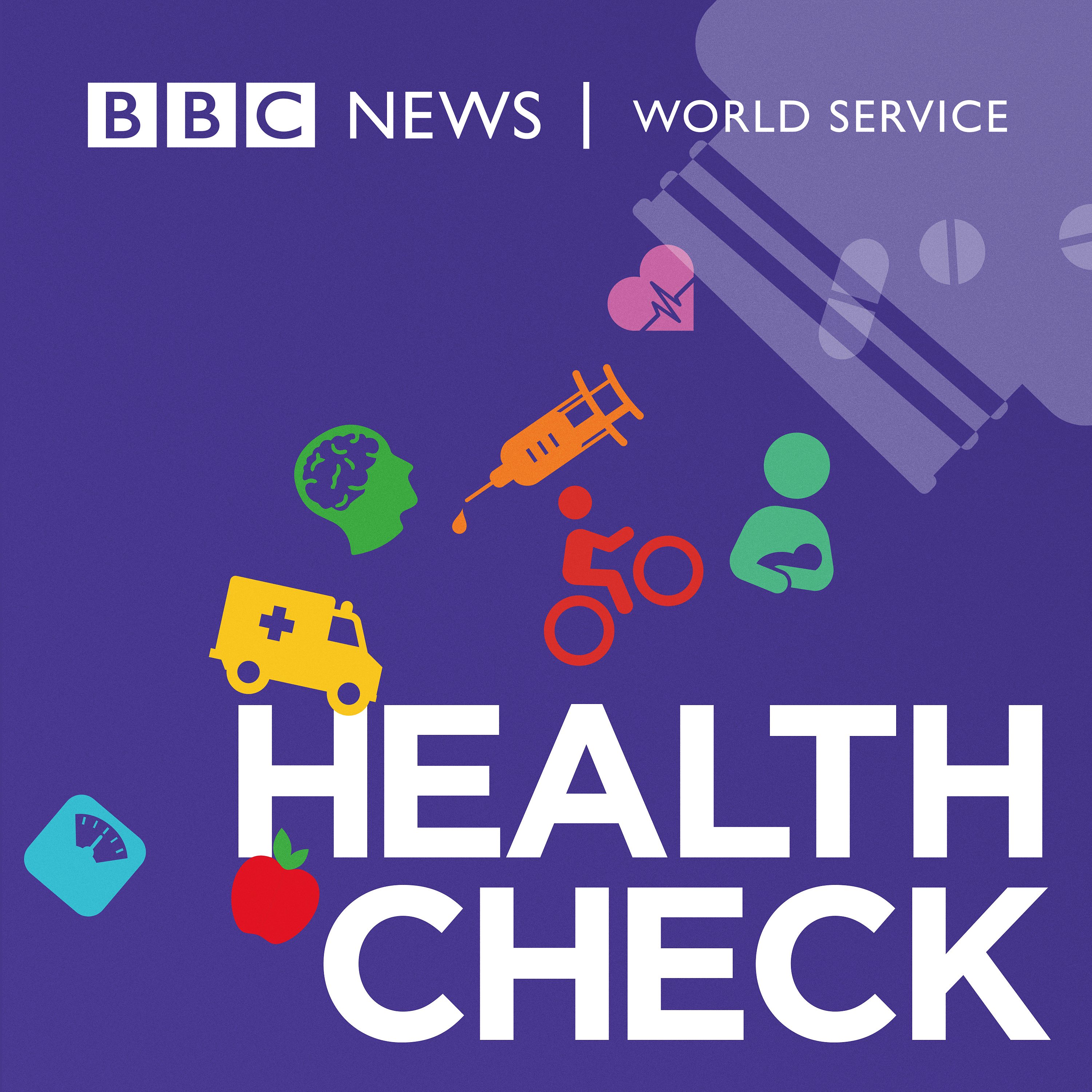

Health Check
BBC World Service
Health issues and medical breakthroughs from around the world.
Episodes
Mentioned books

Aug 7, 2024 • 26min
MPox outbreak worsens
Across the African continent cases of MPox have surged 160% this year. What is behind the spread, and what can be done to stop it? Also on the programme: the prescription of GLP-1 drugs such as Ozempic and Wegovy is increasing as more health benefits are discovered, but what does that mean for supply issues? And there is a lot of talk about lactic acid and the Olympics, but does that word mean what you think it means?(Photo: A mother checks the progress of her son after recovering from Mpox - an infectious disease caused by the monkeypox virus in North Kivu province, Democratic Republic of the Congo, 18 July, 2024. Credit: Arlette Bashizi/Reuters)

Jul 31, 2024 • 26min
World’s first Oropouche deaths in Brazil
The world’s first deaths from the mosquito-borne Oropouche virus have been recorded in Brazil. Two women have died from the illness in the state of Bahia in the northeast of the country.Claudia Hammond is joined by Dr Ayan Panja to discuss the implications of outbreaks of Oropouche across South and Central America.We also hear about the latest developments with Alzheimer’s drug lecanemab as it’s rejected for use by the EU’s health regulator. The European Medicines Agency says the benefits of the drug don’t counterbalance the risk of serious side effects, despite it being approved in the US earlier this year.Claudia and Ayan also look at both the psychology of languishing and whether loneliness leads to a higher risk of having a stroke.And we look at the research suggesting cycling to work can lead to an almost 50% lower risk of dying.Presenter: Claudia Hammond
Producer: Dan Welsh

Jul 24, 2024 • 26min
Systemic racism in health care
Systemic racism affects our wellbeing long before we ever see a doctor. How can the health community address it? Also on the programme, a new malaria vaccine is rolled out in the Ivory Coast, we take a closer look at the story behind it. And while we have long been cautioned against heavy exercise before sleep, it turns out that light intermittent exercise may be the secret to getting a bit more sleep.

Jul 17, 2024 • 26min
Toxic positivity
Join psychologist Dr. Linda Blair, GP Dr. Anisha Patel, and wellbeing consultant Benjy Kusi in a lively discussion on toxic positivity. They highlight the harm of suppressing negative emotions, share personal experiences, and emphasize the importance of authentic emotional expression in navigating mental health and self-esteem challenges. Explore strategies for addressing toxic positivity in the workplace, supporting individuals in tough times, and promoting genuine emotional expression on social media.

Jul 10, 2024 • 26min
Steps forward and back in the battle again HIV
A new medication offers a potentially revolutionary disruption in HIV transmission – just as a leading global program to fight the disease gets hit with funding cuts.Also on the program, what can the recent heat wave in India teach the rest of the world about heat adaptation, and how health care systems can deal with rising temperatures world wide.Presenter: Claudia Hammond
Producer: Margaret Sessa-Hawkins

Jul 3, 2024 • 26min
Can light emitting bandages treat cancer?
BBC health and science correspondent, James Gallagher, and Claudia Hammond discuss groundbreaking health research at the Royal Society Summer Exhibition. Topics include using UV light to target cancer cells, predicting COVID-19 severity with blood tests, immune monitoring for vaccines, and analyzing baby movements for developmental issues.

Jun 26, 2024 • 26min
New MPox strain in DRC
This week on Health Check, we get an update on a new and concerning strain of MPox that is spreading in the Democratic Republic of Congo. Also on the program, it has been two years since the United States overturned the constitutional right to an abortion with the Dobbs decision. What effect has this had on the global picture of abortion? And could arts-based strategies help doctors to cope with burnout and patient communication. Doctor Graham Easton joins Claudia Hammond to discuss these stories and more. Presenter: Claudia Hammond
Producer: Margaret Sessa-Hawkins(Photo: Test tubes labelled "Monkeypox virus positive" are seen in this illustration. Credit: Dado Ruvic/Reuters)

Jun 19, 2024 • 27min
Why is exercise good for your mental health?
In this episode, Jess Robson, founder of 'Run Talk Run', discusses the mental health benefits of exercise. The podcast explores the impact of exercise on depression, the science behind a runner's high, and the importance of promoting a non-competitive atmosphere for sustained exercise habits. Additionally, it delves into the endocannabinoid system's role and the barriers individuals face in incorporating exercise for mental well-being.

Jun 12, 2024 • 26min
Is using the internet good for us?
Professor Matt Fox discusses the positive impact of internet use on life satisfaction and purpose, alongside Dr. Edgard Camarós' research on ancient Egyptian cancer surgeries. The podcast also covers the development of a combined flu and COVID vaccine, a dance program to prevent falls in older individuals, and a 'bug bounty' program for scientific papers.

Jun 5, 2024 • 26min
New human cases of bird flu
Public health consultant Dr Ike Anya discusses the third human case of bird flu in the US and the spread from dairy cows, alongside a discussion on pregnancy allegations linked to weight loss drugs. Author David Robson highlights the impact of social connections on health, and a South Korean stress awareness competition involving resting heart rates is explored.


